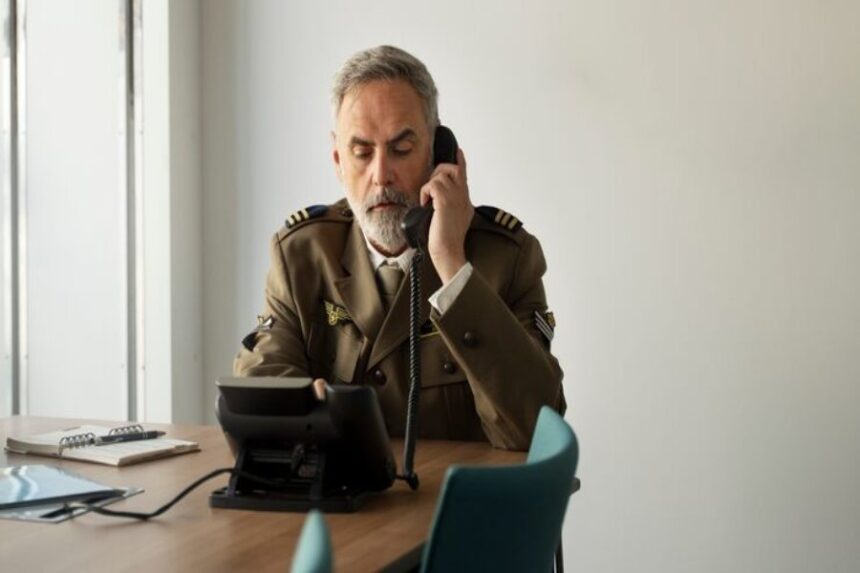The National Guard plays a vital role in providing support during emergencies and crises, but many people are unsure about the specific process and legal authority behind its deployment. One common question that arises is whether a mayor has the power to call in the National Guard. While mayors have essential responsibilities, including managing local crises, their authority in calling the National Guard is limited by legal and governmental boundaries. Typically, mayors alone do not have the direct power to mobilize the National Guard. Instead, the decision falls to the state governor, who has the authority to activate the National Guard in response to emergencies.
- The Mayor’s Legal Role in Requesting National Guard Assistance
- The Legal Framework for Deploying the National Guard
- When Can a Mayor Request National Guard Assistance?
- What Happens After a Mayor Requests National Guard Support?
- How the National Guard Is Deployed: State vs. Federal Authority?
- Deduction
- FAQ’s
However, mayors can request assistance from the governor, and specific circumstances may allow them to influence the decision. In this article, we will explore the processes, legal frameworks, and exceptions regarding how a mayor can request National Guard support, and when the decision lies with the state.
Can a mayor call in the National Guard?
A mayor does not have the legal authority to call in the National Guard directly. The power to activate the National Guard typically rests with the state governor, who may respond to a mayor’s request for assistance during times of crisis. The mayor can request the governor’s intervention, but the final decision is made at the state level.
The Mayor’s Legal Role in Requesting National Guard Assistance
Mayors play a crucial role in managing local issues such as public safety, infrastructure, and public health. However, when it comes to large-scale emergencies like natural disasters, civil unrest, or significant public safety threats, the authority to deploy the National Guard does not rest with the mayor. The National Guard is a state-controlled force that can only be activated through an order from the state governor.
Although mayors cannot directly call in the National Guard, they are instrumental in initiating the process. Mayors are typically responsible for evaluating the situation, determining the severity of the emergency, and assessing the need for National Guard intervention. Once the mayor has assessed the crisis, they formally request assistance from the governor, providing a detailed evaluation of the emergency and the level of support required.
After receiving the request, the governor reviews the situation, consults with relevant state agencies, and decides whether to activate the National Guard. This process ensures that the decision is made at the state level, with the necessary authority and resources to handle large-scale crises effectively.
The Legal Framework for Deploying the National Guard
The deployment of the National Guard is regulated by both federal and state laws, including the National Guard Reserve Act and state constitutions. While the primary responsibility for activating the National Guard rests with the governor, the process often involves input from local officials, such as mayors, especially during times of crisis.
Role of the Governor
Governors hold the constitutional authority to call up the National Guard in response to various emergencies, including natural disasters, civil unrest, or public safety threats. They are responsible for coordinating the Guard’s deployment and ensuring its proper use in addressing the crisis. Governors work closely with local authorities to assess the situation and deploy the necessary resources.
Local Request for Assistance
While mayors cannot directly call in the National Guard, they play an essential role in initiating the process. During emergencies, mayors submit requests to the governor, outlining the severity of the situation and the need for National Guard support. However, the final decision regarding deployment lies with the governor.
Federal vs. State Activation
In some situations, the President of the United States may activate the National Guard for federal missions. This typically occurs in cases of national security threats or other specific circumstances, and it falls outside the jurisdiction of local and state authorities.
If you’re unsure about the legal complexities involved in requesting National Guard support, consulting an expert like Pedro Paulo Business Consultant can provide valuable insights and guidance.
When Can a Mayor Request National Guard Assistance?
While mayors cannot directly call in the National Guard, they can request the governor’s intervention during critical events. These events typically include:
- Natural Disasters: Hurricanes, floods, wildfires, and other natural disasters often require the National Guard’s involvement for search and rescue, emergency response, and logistics.
- Civil Unrest: Protests, riots, and violent disturbances may lead to calls for National Guard intervention to maintain public order and safety.
- Public Health Emergencies: In the case of a public health crisis, such as a pandemic, a mayor may request the National Guard for logistical support in setting up temporary medical facilities or distributing supplies.
The ability for a mayor to request National Guard assistance is dependent on the urgency and scope of the event, and typically requires coordination with both state and federal authorities.
What Happens After a Mayor Requests National Guard Support?
Once a mayor requests National Guard assistance, the process moves through several stages, with the governor at the center of the decision-making. Here’s what typically happens:
- Mayor Submits Request: The mayor assesses the crisis and provides a formal request to the governor, outlining the situation and the need for the National Guard.
- Governor Reviews the Situation: The governor evaluates the request, consulting with state agencies, emergency management teams, and the mayor’s office.
- Decision to Deploy the National Guard: If the governor agrees that the situation warrants a response, they will activate the National Guard, directing resources to the affected area.
- Coordination with Local Officials: Once deployed, the National Guard works closely with local officials to ensure that operations are effectively managed, often providing support for law enforcement and emergency responders.
How the National Guard Is Deployed: State vs. Federal Authority?
Understanding the differences between state and federal authority over the National Guard is crucial for knowing who can deploy the force and under what circumstances.
- State Control: In most cases, the National Guard is under the control of the state governor, who can call upon the Guard for emergencies that affect the state’s citizens and infrastructure.
- Federal Control: In rare instances, the President of the United States can activate the National Guard for federal missions, typically during times of national emergency or for overseas military operations. This power is separate from state authority and involves a different set of legal procedures.
- Dual Role of the National Guard: The National Guard serves both state and federal roles, which is why both state and federal laws govern its activation. This dual mission provides flexibility but also creates a complex system of checks and balances.
Deduction
In conclusion, while mayors cannot directly call in the National Guard, they play a key role in initiating the process. By assessing the emergency and requesting assistance from the governor, they ensure that the necessary resources are mobilized to address local crises. The final decision to deploy the National Guard rests with the governor, who evaluates the situation and determines the best course of action. Understanding this process is crucial for both local officials and citizens, as it ensures proper procedures are followed and the National Guard is deployed effectively to safeguard public safety during large-scale emergencies.
FAQ’s
Can a mayor directly deploy the National Guard?
No, a mayor cannot directly deploy the National Guard. The authority to call in the Guard rests with the state governor, although mayors can request assistance.
What types of emergencies require National Guard deployment?
The National Guard can be deployed during natural disasters, civil unrest, public health emergencies, and other critical situations that require additional support.
Does the National Guard operate under state or federal authority?
The National Guard primarily operates under state authority but can be called into federal service in certain situations, such as national defense.
How does a mayor request National Guard assistance?
A mayor must submit a formal request to the state governor, outlining the emergency and explaining why National Guard involvement is necessary.
Can the National Guard be used for non-emergency situations?
Typically, the National Guard is deployed for emergencies, but it can also provide support in non-crisis situations, such as assisting with community events or public services under specific agreements.




